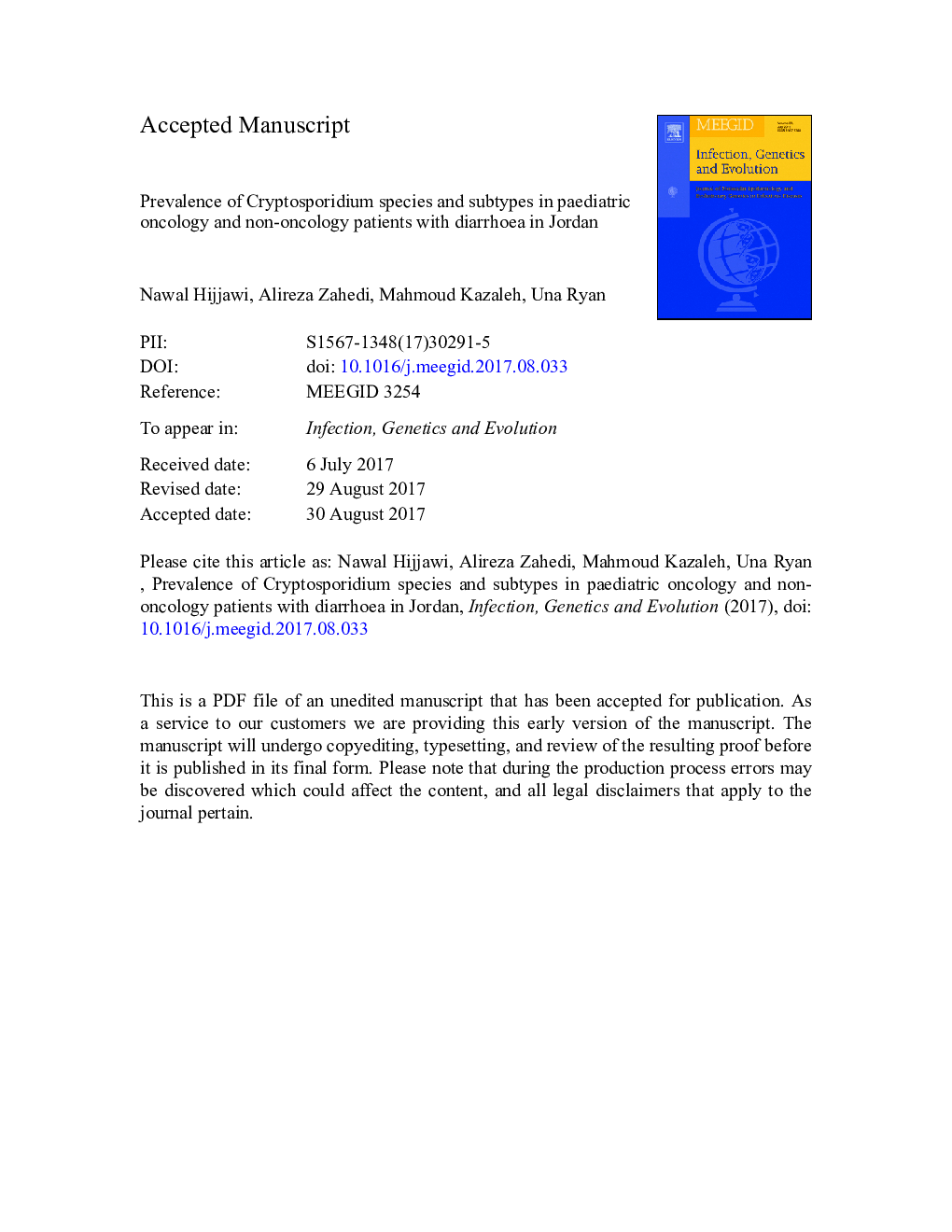| Article ID | Journal | Published Year | Pages | File Type |
|---|---|---|---|---|
| 5590355 | Infection, Genetics and Evolution | 2017 | 21 Pages |
Abstract
Cryptosporidiosis is a protozoan parasitic disease which affects human and animals worldwide. In adult immunocompetent individuals, cryptosporidiosis usually results in acute and self-limited diarrhoea; however, it can cause life threatening diarrhoea in children and immunocompromised individuals. In the present study, we compared the prevalence of Cryptosporidium species and gp60 subtypes amongst paediatric oncology patients with diarrhoea (n = 160) from King Hussein Medical Centre for Cancer in Jordan, and non-oncology paediatric patients with diarrhoea (n = 137) from Al-Mafraq paediatric hospital. Microscopy results using modified acid fast staining identified a significantly (p â¤Â 0.05) higher prevalence of Cryptosporidium in paediatric oncology patients with diarrhoea (14.4% - 23/160), compared to non-oncology paediatric patients with diarrhoea only (5.1% - 7/137). With the exception of one sample, all microscopy-positive samples (n = 29) and an additional 3/30 microscopy-negative controls were typed to species and subtype level at the 18S and gp60 loci, respectively. All Cryptosporidium positives were typed as C. parvum. Of the 22 typed Cryptosporidium positives from the paediatric oncology patients, 21 were subtyped as IIaA17G2R1 and one as IIaA16G2R1 C. parvum subtypes. The 7 typed positives from the paediatric patients from Al-Mafraq hospital were subtyped as IIaA17G2R1 (n = 5) and IIaA16G2R1 (n = 2). The 3 additional positives from the 30 microscopy negative control samples were subtyped as IIaA17G2R1. The high prevalence of the IIaA17G2R1 subtype, particularly amongst oncology patients, suggests that an outbreak of cryptosporidiosis may have been occurring in oncology patients during the collection period (April to December, 2016). New therapies for cryptosporidiosis in immunocompromised patients are urgently required.
Related Topics
Life Sciences
Agricultural and Biological Sciences
Ecology, Evolution, Behavior and Systematics
Authors
Nawal Hijjawi, Alireza Zahedi, Mahmoud Kazaleh, Una Ryan,
